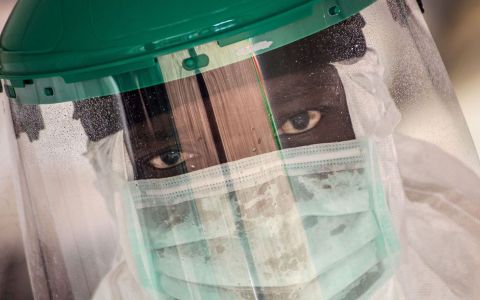WEST AFRICA: Rituals drive spike in Ebola infections
by - 21st November 2014

AS LIBERIAN confidence in tackling Ebola is boosted by the announcement that the country's national state of emergency has been lifted, concern remains about its neighbour, Sierra Leone, where health messages fail to address cultural practices that help spread the disease.
Contact with the bodies of those who have died from Ebola has been determined to be the biggest driver of new Ebola cases in Sierra Leone, and reasons behind direct contact stem from religious and cultural practices.
Recent surveys reveal that there is now a high level of awareness across the country about Ebola, but that awareness has not yet coalesced into significant behavioral change.
While people now know about Ebola and how to avoid it, many still struggle with healthcare officials' advice to avoid touching sick people and dead bodies because that guidance runs counter to religious and cultural practices, such as caring for the sick, honouring the dead or preparing corpses for burial.
Trapped
Communities are trapped between providing basic care for their sick family members while waiting for the ambulance to reach them and running the risk of being infected with the virus.
With the ambulance teams' response times being very slow due to a lack of vehicles and hospital beds, parents are tempted to risk their lives offering care and support to their Ebola-infected children, with children doing the same for their ill parents.
Certain religious and cultural practices in Sierra Leone require preparing a corpse for burial and honouring the dead by attending funerals or visiting the mourning family to express condolences. It further involves washing the body or touching of the body somehow.
According to official data, 70 per cent of new Ebola cases around the country stem from contact with a dead body or from attending a funeral of a family member or close friend.

Special measures being taken by the government to contain this manner of spreading the disease include treating all deaths during this period as possible Ebola deaths, assigning Ebola burial teams to bury the bodies within 24 hours, and allowing only 10 family members or friends to witness the burial.
This is a major paradigm shift, and the public is struggling to adapt, particularly when the family can certify that the deceased had been diagnosed with a different ailment long before the advent of Ebola in the country.
Under Sierra Leone's current state of emergency laws in force, this is a policy of strict compliance. As recently as few weeks ago, a swab test would be performed on the corpse to determine whether the cause of death was Ebola, and if the result was negative, the family would have been permitted to bury their dead observing the religious rites they prefer.
However, with recent statistics proposing that 60 - 70 percent of new cases could be prevented with safe burials, the government and its partners say robust action is needed.
Extraordinary measures
'Extraordinary challenges require extraordinary measures,' President Ernest Bai Koroma said in a recent broadcast to the nation.
The World Health Organization (WHO) however is warning of thousands of unreported deaths.
'There are lots of missing deaths in this epidemic,' said Christopher Dye, WHO's strategy chief. He estimates that around 5,000 fatalities could be missing from the count. This assessment, he said, was based on the knowledge that the fatality rate in the epidemic centered in Guinea, Liberia and Sierra Leone stands at about 70 percent.
Dye said the likely explanation was that many people were burying the dead in secret, possibly to avoid having authorities interfere with burial customs like washing and touching the deceased widely blamed for much of the transmission.
The UN Mission for Ebola Response confirms that currently there are only four health centers with 288 beds available in Sierra Leone, and stresses the need to raise capacity to 1,864 beds by December. However, the 10 treatment centres currently being planned will only have room for 1,133 patients in the country. The US Center for Disease Control estimates that 1.5m people may be contaminated if the pandemic continues to spread at the current rates.
Meanwhile Liberia’s public health campaigning with messages about washing hands and not touching dead bodies has payed off. It has only 36 new cases registered compared to 150 per day at the disease’s outbreak.
This article first appeared on the Media Project website www.themediaproject.org and is used with their permission.
